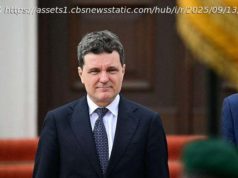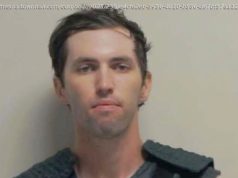Here’s a look at some of the legal issues Donald Trump Jr. could be facing.
WASHINGTON – Emails released by Donald Trump Jr. Tuesday show he was excited about the possibility of the Russian government providing him with damaging information about Hillary Clinton during last year’s presidential campaign.
«If it’s what you say I love it, ” the president’s eldest son wrote to an intermediary eager to set up a meeting where Trump Jr. was promised information that would «incriminate» Clinton.
Related:
But is that evidence of any crime?
Here’s a look at some of the legal issues that could be in play, based on what we know now.
Maybe.
There’s a lot more to learn from the ongoing investigations by a special counsel and congressional committees, which are whether Trump associated colluded with Russia. The U. S. intelligence community has concluded that Russian President Vladimir Putin directed a campaign of cyberattacks and fake news to influence the 2016 presidential election in favor of Trump.
“I don’ t think we’ re at the end. We’ re at the beginning, ” said Ron Hosko, a former chief of the FBI’s criminal division, of the latest bombshell revelation. “It gives Bob Mueller, who has fairly wide latitude, plenty of potential questions to ask and to probe.” Mueller, a former FBI director, is the special counsel overseeing the Justice Department’s Russia investigation.
However, while collusion has been the hot topic in Washington for the last several months of investigations, that’s not the only thing that can could potentially get Trump Jr. in hot water, experts say
Legal analysts said Trump Jr. may have breached campaign finance laws that forbid foreign contributions — even in-kind contributions.
«A meeting with a foreign national known to have ties to a sensitive foreign regime raises a host of legal issues, including under campaign finance law because what is being offered is potentially an illegal foreign in-kind contribution, » said Norm Eisen, chairman of the board of nonprofit legal watchdog group Citizens For Responsibility and Ethics.
In a complaint filed Monday, liberal watchdog group Common Cause asked the Federal Election Commission and the Department of Justice to investigate whether campaign finance laws were broken. The complaint says the law prohibits a non-citizen from giving, or promising to give, anything of value in hopes of influencing an election.
“The violations of federal campaign finance law alleged in the attached complaint pose a direct threat to democracy and national security in the United States, ” wrote Common Cause’s Paul S. Ryan.
Matthew Miller, a former Justice Department spokesman in the Obama administration, said campaign finance law «makes it illegal to solicit or receive a thing of value from a foreign national» and that Trump’s willingness to accept derogatory information about an opponent would qualify. «Pretty clear he did that, and not just from a foreign national, but one he knew was working on behalf of a foreign government, » Miller said in an email.
In the emails Trump Jr. released Tuesday, entertainment publicist Rob Goldstone offered to connect the Trump campaign «with some official documents and information that would incriminate Hillary and her dealings with Russia and would be very useful to your father.» Goldstone also called it «obviously very high level and sensitive information but is part of Russia and its government’s support for Mr. Trump.»
Yes, Trump Jr. said that no information was ultimately provided in the June 9,2016 meeting Goldstone set up with Kremlin-linked lawyer Natalia Veselnitskaya.
But Notre Dame University law professor Jimmy Gurule said merely the agreement to meet – with the understanding the Russian government was peddling damaging information about Trump’s rival – could constitute a conspiracy to violate federal election law.
«The fact that he and others (former Trump campaign chairman Paul Manafort and son-in-law-turned-White House adviser Jared Kushner) met with her is an overt act that may support criminal intent, » said Gurule, a former Treasury Department official enforcement in the administration of President George W. Bush. «Ignorance of the law is no defense.»
Campaign finance law expert Rick Hasen said this could be considered «solicitation» of a contribution and that there’s a lot for prosecutors to sink their teeth into. “Hard to see how there is not a serious case here of solicitation, ” Hasen wrote on his blog. “Trump Jr. appears to have knowledge of the foreign source and is asking to see it.”
Hasen said it’s also possible other laws were broken, such as laws against coordinating with a foreign entity on an expenditure.
Yes. Richard Painter, who served as President George W. Bush’s chief ethics counsel, said Tuesday that Trump Jr. faces perhaps the most serious legal jeopardy in how he chooses to respond to questions likely to come from congressional investigators and Russia special counsel Mueller.
Top Democrats on the Senate and House Intelligence committees and the Senate Judiciary Committee already have vowed to call Trump Jr. as a witness in their parallel investigations.
When it comes to those investigations, Painter said Trump Jr. would likely be asked to reconcile recent, differing statements about the purpose of his June 9,2016 meeting with Veselnitskaya. And Trump Jr. needs to be very careful about the statements he gives – considering how his accounts of the meeting appeared to have evolved over time in response to news reports.
It’s all part of a general pattern of truthfulness, which will matter a lot to investigators once he’s a witness or subject of an investigation, Painter said. Consider this: On Saturday, Trump Jr. released a statement to reporters, saying that the session first disclosed by the New York Times involved only a discussion about the adoption of Russian children by Americans, which was halted by the Kremlin following the passage of a 2012 law blocking Russians suspected of human rights abuses from entry to the U. S.
One day later, Trump Jr. conceded that the pretext of the meeting was an offer of information damaging to the Clinton campaign. And the emails Trump Jr. released not only back up the idea that the explicit purpose of the meeting was to obtain incriminating material on Clinton – but show he knew the information was coming as part of a Russian government effort to help his father’s candidacy. “It’s not a crime to lie to the press,’ ’ Painter said. “But if he doesn’ t answer the questions truthfully to investigators, he could face charges of providing false statements or even obstruction of justice.
«It seems to me that he better get his act together and tell the truth, because he seems to be having some trouble with that lately, » Painter continued.
Collusion is a contender for the Washington word of the year, and that’s of course the subject of the special counsel criminal investigation. With the latest news, the Trump campaign team’s longstanding, vociferous insistence that there’s no evidence of “collusion” between them and Russian operatives is beginning to crumble, legal analysts at the Lawfare blog wrote Tuesday.
“If the Trump campaign didn’ t collude with the Russians, it wasn’ t for lack of trying, ” Benjamin Wittes and his colleagues wrote.
But is collusion a crime? PunditFact, a project of the Tampa Bay Times and the Poynter Institute, ran that by three prominent election law scholars. They said there are at least four laws that would prohibit the sort of activities under investigation, even if the laws don’ t specifically use the word “collusion.
Домой
United States
USA — Criminal Did Donald Trump Jr. break any laws by seeking damaging information on...






